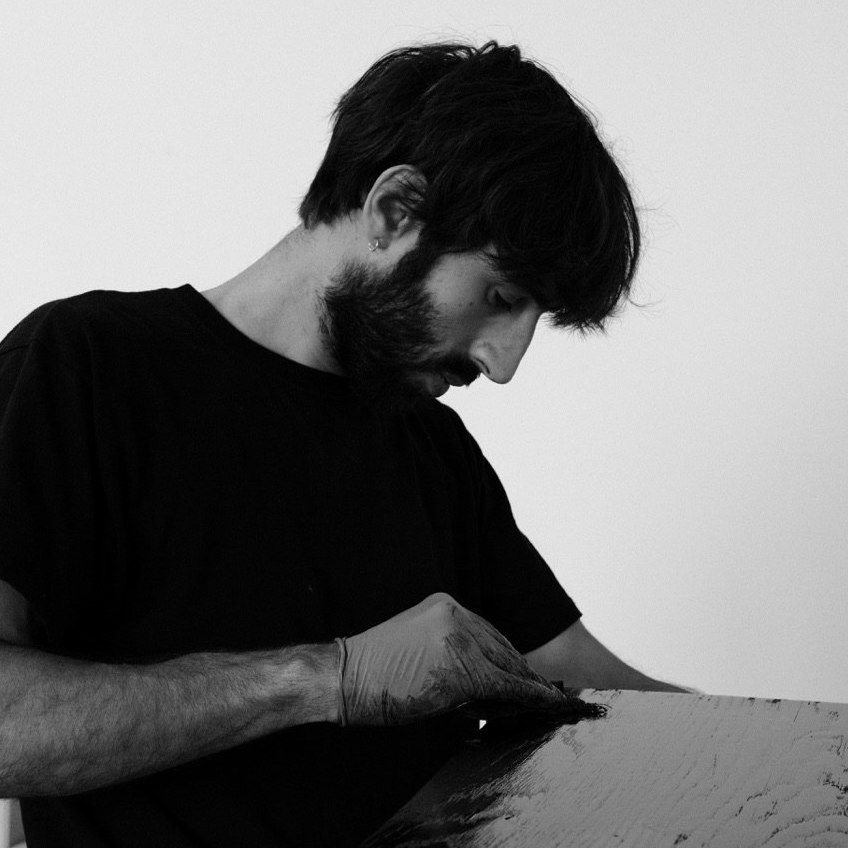
Lukas Cober
Lukas Cober is a craftsman and designer living and working in the Netherlands. Thinking about each piece as a static sculpture he creates a conversation between materiality and shape with a pure outcome. He emphasizes the value and beauty of the chosen raw material to create minimalistic objects that remain timelessly beautiful.
If you had access to all the powers, how would you improve the world?
I would make borders disappear, unifying human kind as world citizens, free to go and live wherever they want and being treated all the same.
What are the biggest sustainability challenges in your work and how are you addressing them?
Sustainability is not necessarily a substantial part of my work since I don’t want to limit myself through restricted possibilities within this field. However I do believe that my work is addressing sustainability in an essential way since I am trying to create work of “real value”. I like to think of my work as sculptural pieces rather products. The challenge I see within my work is to create unique pieces with a focus on authenticity that overcome time without losing value. I think this is becoming even more so important in our globalising world where mostly mass-products off the shelf are being produced that pass with the blink of an eye.
Which conscious lifestyle choices are you making? And are you considering any new ones?
I try not to consume too much myself and not to take part in the race of our capitalist society. Freeing myself from material trash and find quality in life through time as the most valuable good.
What have you rebelled against in the past, and what are you rebelling against now?
There are many things that would be worth rebelling for but I can’t say I am actively rebelling against something. I have my own ideas and values that I live and work for, not trying to convince others but just live it for myself. If anything stands in the way I just pass it and go on. Really not caring too much about what others think but just do my own thing. A quiet kind of rebellion maybe or just ignorance. Perhaps it’s a stubborn way of thinking but consequent enough to be productive, push great ideas forward and enjoy what you do in private as well as professional perspective.
Do you think cutlery can still be improved? If yes, in what way?
I think the design of cutlery is very practical and historically very static, only changing slowly. As a practical object cutlery is quite defined and doesn’t leave much space to be creative. But for these exact reasons it is a perfect platform for new artistic approaches in order to break rules, challenge and create conversations. I think it’s not about improving what there is but about questioning who we are.
What was the inspiration for your Steinbeisser pieces?
When Steinbeisser approached me to make cutlery for the dinners with Zen Buddhist nun Jeong Kwan, I wanted to create objects that tell a story of something that comes from earth and goes back to earth and seeing beauty in all its states. Inspired by that I worked on a collection of conceptual chopsticks that reflect this image through shape and materialisation. I’ve been working with burned oak and ceramics lately and thought that these two would be perfect to translate that idea. The outcome are chopsticks made from naturally fallen Oak and Acacia wood as well as black natural fired clay that share the same roughness. The chopsticks are reflecting different material states from natural to altered surfaces, from smooth finishes to raw ashes, from naturally emerging to forced shapes. Some useful, some challenging but all have their right to exist for their own reason.
Describe your work in 3 words!
Minimalistic. Raw. Honest.
What kind of materials do you use and where do you get them from?
Though I like to use various materials for my work, I mainly work with wood from Europe. In its pure form or altered into a different state, I try to let it speak for itself before even thinking about a defined shape that goes in conversation with the material.
What has been your favorite dinner experience?
My favorite dinner experience was together with a group of friends traveling in Northwest Italy. One of my friends was from that area and took us to a small and quiet farm-to-table family restaurant in the mountains. I didn’t expect much but was blown away by the taste of the most simple ingredients in the most simple dishes just by the quality of local and ecological farming.
What excites you about tomorrow?
I am excited about trying out all the ideas that I have and hopefully still find some time in between to go on road trips together with my wife and my dog in our van.